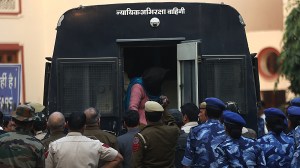RBI unveils norms to rein in recovery agents
Cracking the whip on recovery agents of banks, the Reserve Bank of India on Friday unveiled draft guidelines...

Cracking the whip on recovery agents of banks, the Reserve Bank of India (RBI) on Friday unveiled draft guidelines listing procedures to be followed by recovery agents. The central bank has proposed training for agents and asked banks to follow legal remedies while taking possession of property mortgaged or hypothecated to banks. The move follows the rising instances of abusive practices by agents and litigations involved with borrowers.
According to the RBI, banks should have a due diligence process in place for engagement of agents, which should be so structured to cover individuals involved in the recovery process.
“While forwarding default cases to agents, banks should inform the borrower the details of agents engaged for the purpose. The details should include their telephone numbers etc. The agents should call the borrowers only from notified telephone numbers,” the RBI said, while inviting public comments on the draft norms. It will announce the final norms after a month.
It also said each bank should have a mechanism whereby the borrowers’ grievances, with regard to the recovery process, can be addressed. Details of the mechanism should also be furnished to the borrower. “Banks are advised to ensure that contracts with agents do not induce adoption of uncivilised, unlawful and questionable behaviour or recovery process.”
“Agents should not resort to intimidation or harassment, including acts intended to humiliate or intrude into the privacy of the borrowers’/ credit card holders’ family members, referees and friends, making threatening and anonymous calls or making false and misleading representations,” the RBI said.
On repossession of property mortgaged or hypothecated to banks, the RBI said banks should rely only on legal remedies (SARFAESI Act and the Security Interest (Enforcement) Rules, 2002) available under the relevant statutes which allow banks to enforce the security interest without the court’s intervention.
If banks have to incorporate a re-possession clause in the contract with the borrower, they should ensure that this clause is legally valid, and the procedure of repossession, sale or auction, terms and conditions are clearly brought to the notice of the borrower at the time of execution of the contract.
The RBI has asked the Indian Banks’ Association to formulate, in consultation with Indian Institute of Banking and Finance (IIBF), a certificate course for direct sales agents, direct marketing agents and recovery agents with minimum 100 hours of training.
“Once the course is introduced, banks should ensure that over a period of one year all their recovery agents undergo training. The service providers engaged by banks should employ only such personnel who have undergone the training and obtained the certificate from the IIBF,” the RBI said.
Banks should preferably use the forum of Lok Adalats for recovery of personal loans, credit card loans or housing loans with less than Rs 10 lakh as suggested by the Supreme Court, the RBI said. In the case of violation of rules, the RBI may consider imposing a ban on a bank from engaging recovery agents in a particular area for a limited period.
In case of persistent breach of guidelines, the RBI may consider extending the period or the area of ban. Similar supervisory action could be attracted when the High Courts or the Supreme Court pass strictures or impose penalties against any bank or its directors, officers or agents with regard to policy, practice and procedure related to the recovery process.
Tackling the menace
•Banks should have a due diligence process in place for engagement of recovery agents
•Banks should have mechanism to address borrowers’ grievances
•Banks should not set stiff recovery targets or incentives to agents
•No intimidation or harassment by recovery agents
•On repossession, banks should rely on legal remedies
•Training for recovery agents to be made mandatory
•For loan recovery below Rs 10 lakh, banks should use Lok Adalats



- 01
- 02
- 03
- 04
- 05




























